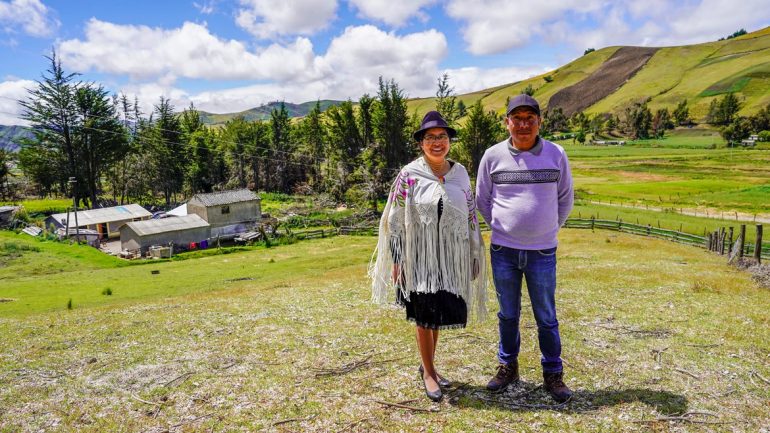The Masaryk University Language Centre (CJV MU) is hosting representatives from South America as part of a unique connection between an international project to save indigenous languages, a biennial on Ibero-American culture, and an exhibition on the Amazon.
Members of the Educational Portal for Sustainable Cultural Diversity in Latin America (EPSULA) – which aims to create an online portal that will preserve selected disappearing indigenous languages of Latin America – are meeting this week in Brno. The project is coordinated by CJV MU and includes six other universities in Spain, Finland, Ecuador, and El Salvador, whose representatives and delegations reached Brno on Monday.
“Recordings, videos, and other materials will serve not only universities, but also travel agencies, non-profit organisations, and any others who support sustainable development in isolated locations,” said Barbara Staffolani, project coordinator from CJV MU.
“The EPSULA project is one of the university’s successful international endeavours,” said Michal Bulant, Masaryk University vice-rector for education and quality. “Its results could have a significant impact on language teaching at European universities, which will thus be able to include unique original pedagogical materials in their programs. At the same time, the good practice of Masaryk University and other European partners in the field of soft skills in education will be extended to universities in Ecuador and El Salvador.”
The invitation from Masaryk University was also accepted by the ambassadors of Peru and Brazil in Prague, the El Salvadoran ambassador in Berlin, the honorary consul of El Salvador, and representatives of the Colombian embassy in Vienna. Together with the Latin American guests of the EPSULA project, they make up part of the Ibero-American Week in Brno.
CJV MU is participating for the first time in the biennial program, which is sponsored by the Czech Ministry of Foreign Affairs.
Libor Štěpánek, the Language Centre director, considers this a great success: “The whole week is extremely important, especially from the point of view of the global reach of Masaryk University’s activities. In addition to teaching languages and developing language skills, the Language Centre aims to support the intellectual and personal growth of individuals, to point out the richness of different cultures, and to bring foreign-language communities closer to the public. The EPSULA project and the centre’s involvement in the Biennale of Ibero-American Cultures exactly fulfil all these goals.”
In addition to this, the Moravian Regional Museum will start hosting the exhibition “Thousand Faces of Amazonia” in close cooperation with CJV MU, through Hispanist Athena Alchazidu.
The exhibition presents the cultural and natural diversity of the Great Amazon region, and local ethnic groups were included in the preparation of the exhibition to an unprecedented extent. It will give visitors tools to enhance their understanding of nature, mythology, religion, customs, and other aspects of Latin American cultures.
The life of remote communities will be portrayed through authentic video recordings, haptic objects from the workshop of the Teiresiás Centre (which helps MUNI students with specific needs from Masaryk University), Braille labels, and other elements. Visitors will be able to choose between Czech, Spanish, and English, thus opening the exhibition to the large community of foreigners in Brno and across the Czech Republic.
“In order to really open the exhibition to the widest possible audience, we invited the pupils of the Smetanova Secondary School in Brno to read the audio guides for the blind, as well as the stories and myths that we managed to record through the project. They will show Czech visitors the thinking of distant ethnic groups and their worldview,” explained Alchazidu.
Narcisa de Jesús Ullauri Donoso, an anthropologist from the Universidad del Azuay in Ecuador, is a co-author of the exhibition, which will bring collection items from her native country to Brno’s Anthropos Pavilion.
The creators will reveal more about the exhibition in the presence of foreign delegations at the opening, which will take place tomorrow, 16 May, at 5 pm at Anthropos.







